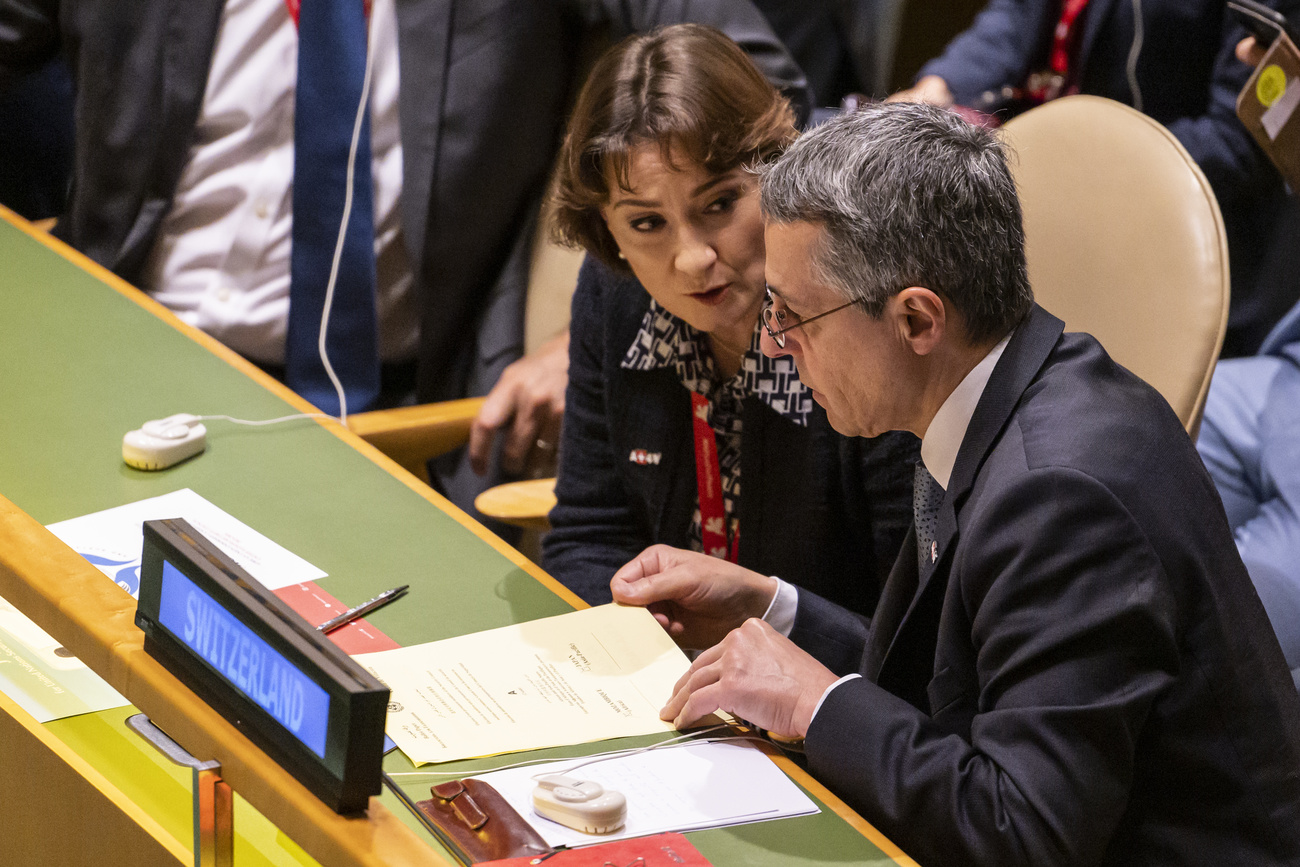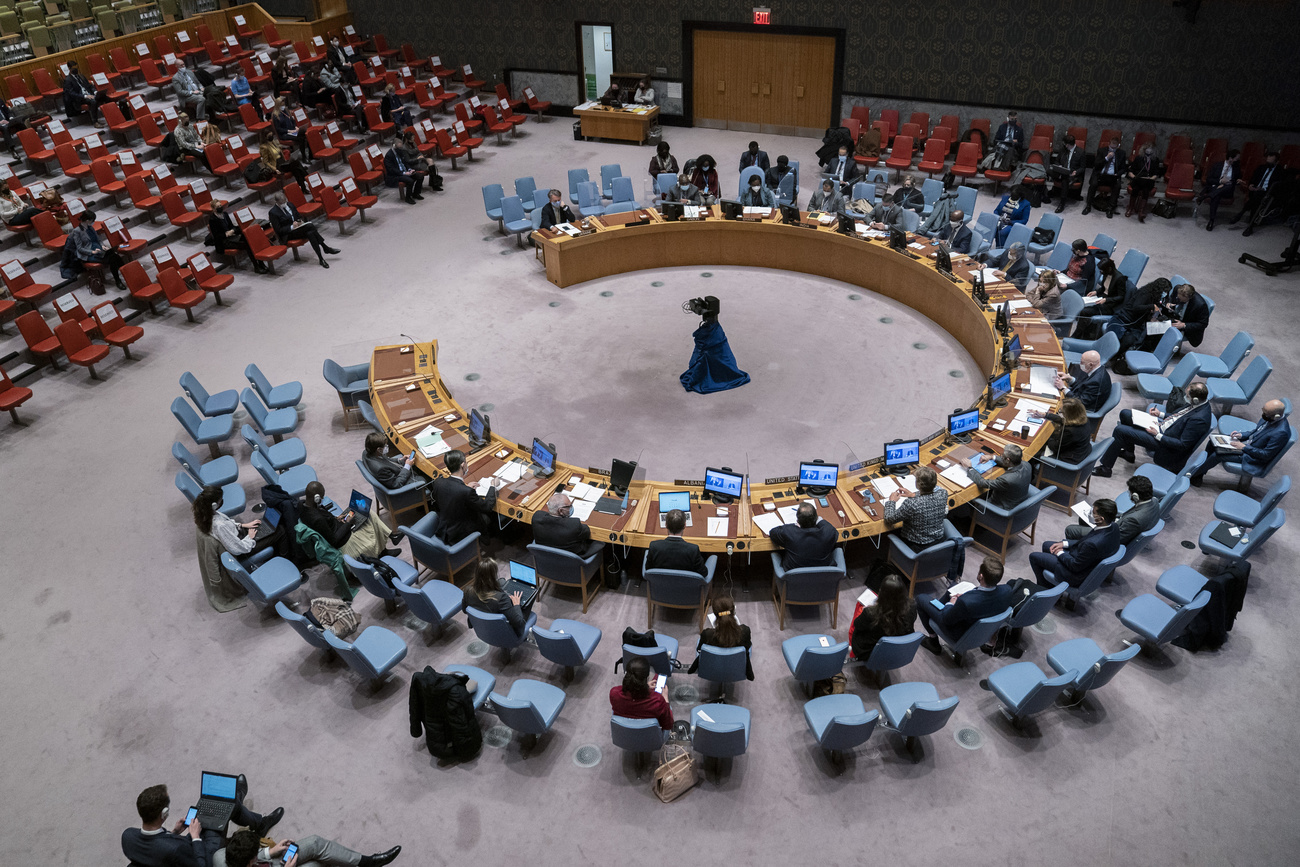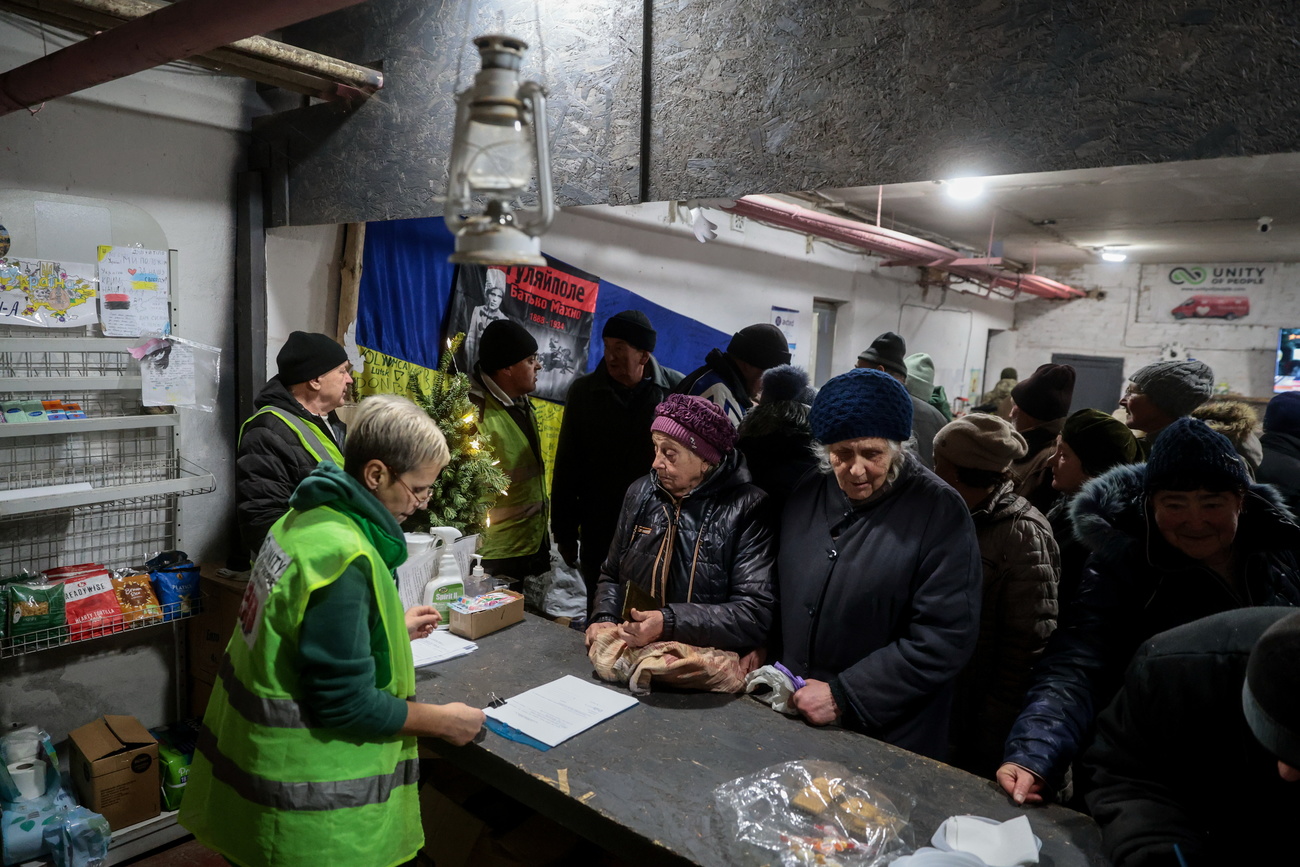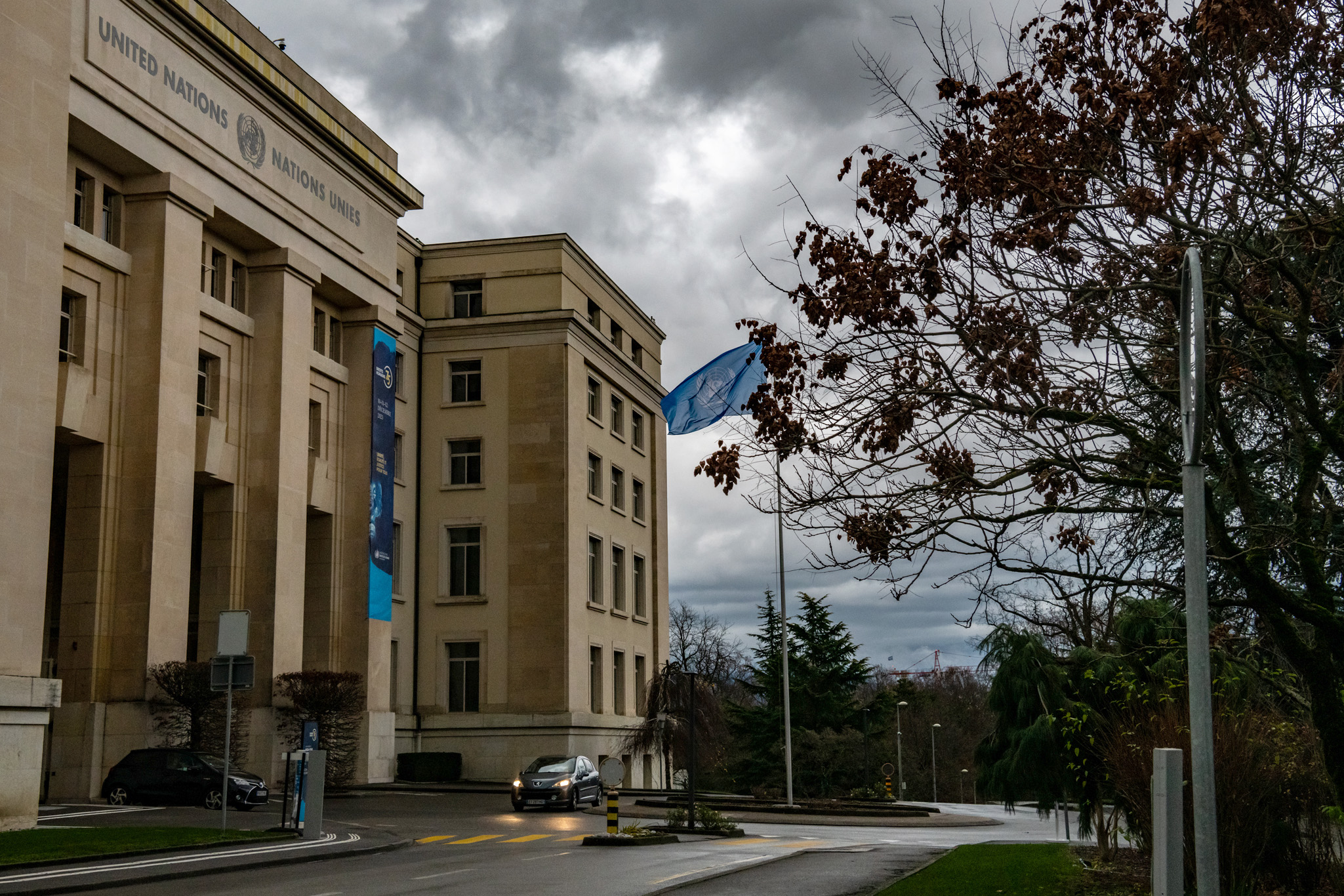UN General Assembly president: ‘Over 75 years we’ve not had a Third World War’

In Geneva to address the United Nations Human Rights Council, the president of the General Assembly, Dennis Francis, weighs in on the wars in Gaza and in Ukraine, and shares what keeps him optimistic.
“There’s evidence that [the Security Council] has been unable to take decisions in the context of peace and security. But the General Assembly has not hesitated to act decisively,” responds Dennis Francis, when asked about the United Nations Security Council’s inability to act in response to the ongoing wars in Gaza and in Ukraine.
The 67-year-old diplomat from Trinidad and Tobago is the current president of the New York-based General Assembly – the only UN organ in which every member state has a seat, a vote, and importantly, where no country has a veto.
In this role, Francis heads the meetings of the 193-member body. It offers him a unique perspective on the priorities and concerns of the international community. As a representative of all UN member states, he is one of the organisation’s top officials.
Francis is dressed in the typical diplomat’s uniform – a navy blue suit and a tie. We met him shortly after his address to the Human Rights Council in Geneva earlier this week, during which he once more called for an “immediate humanitarian ceasefire” in Gaza and for the opening of corridors allowing more aid to enter the strip where some 1.7 million people are displaced.
The Security Council is responsible for maintaining peace and security in the world, but as Francis points out, the General Assembly retains “residual responsibility” for it, meaning that it has to take on failures of the Security Council.
Act when the Security Council is paralysed
Over the last two years, the Security Council has been paralysed by the constant veto of some of its five permanent members (China, France, Russia, the United Kingdom, and the United States). It could not stop Russia’s invasion of Ukraine or vote a ceasefire in Gaza which is facing an unprecedented humanitarian crisis.
As a result, the General Assembly has stepped up to tackle issues on which the Security Council could not agree. Not long after the beginning of Russia’s war on Ukraine in February 2022, the UN body condemned Moscow’s violation of the UN Charter. And on Gaza, the General Assembly has called for a ceasefire and the release of Israeli hostages. But unlike those of the Security Council, its resolutions are not legally binding and only carry moral weight.
“What the General Assembly has done is to try to bring a halt to the hostilities, to take people out of harm’s way, and to create a climate in which some sort of political process can be initiated that could possibly lead to the resolution of the Palestinian-Israeli question,” explains Francis. But the diplomat does not say what further action the General Assembly could take.
Francis worries about Israel’s plan to conduct a ground offensive in the southern Gaza city of Rafah where most Gazans have relocated. “Our big concern is that, should a way not be found to move those people out of harm’s way, there would be a real tragedy of human lives being lost again,” he says.
Resume funding for UNRWA
Last week, the head of the UN Agency for Palestine Refugees (UNRWA), the Swiss Philippe Lazzarini, sent a letter to Francis saying that his organisation had reached a “breaking point” threatening its ability to fulfil its General Assembly mandate, which includes providing Palestine refugees with services like education, primary health care, or emergency assistance. He warned that UNRWA’s operations would be “severely compromised” from March due to a lack of funding.
Israel has accused UNRWA staff members of having taken part in the Hamas attack on Israel on October 7 prompting some of the organisation’s donors to suspend their funding. Two investigations are ongoing to verify Israel’s claims.
“UNRWA has been a lifeline to the people of Palestine from its inception,” says Francis, who hopes donor countries will maintain their support for UNRWA until the investigations are closed.
“The evidence has yet to come forward. But in the meantime, the life and the welfare of the people caught in Gaza hang in the balance,” says the diplomat. “I called upon donor countries to maintain their support for UNRWA. Because if we don’t then I fear that we may find ourselves having to accept some level of responsibility for what happens to the people of Gaza.”
Ukraine war enters its third year
As the war in Ukraine enters its third year, UN aid agencies continue to support its victims. But on the political front, the organisation has yet to take meaningful action.
Could the General Assembly propose a UN mediation of the conflict? “A UN-mediated peace process I suppose is possible in principle. But it would only be practicable if the UN enjoys the support of both sides. It’s not clear to me at this stage that this is the case,” replies Francis.
He adds that he is ready to support “any initiative that could lead the way to bringing this unjust war to a halt” but says he fears this war could “drag on for a very long time”.
Budget issues
Last year, some of the UN’s biggest contributors, including the US, failed to fully pay their membership fees in time, leading the UN office in Geneva to close for three weeks to save money.
Is Francis worried about countries possibly leveraging their contributions to weaken the UN? “I don’t know the specific reasons why member states may be delaying their contributions,” he says. Francis adds that the UN’s work is “definitely impacted” by the lack of resources and encourages countries to pay their bill as soon as possible.
Conflicts, violations of international law, climate change, a world way off target on its Sustainable Development Goals (SDGs) – how does the president of the General Assembly remain optimistic about the future? “Because when I sit on the podium, and I look out, and I listen to the statements, I hear where people are mentally. And often I hear positive messages, a determination from members that we have to move forward,” he says.
“We have a mandate to act in a manner that furthers the interests of the international community as a whole,” says Francis. “The political will might not be as strong now as we need it to be, but we have the capacity, we have the experience, and we have more than anything else, almost 75 years of success in doing it. Because, let’s face it, over 75 years we’ve not had a Third World War.”
Edited by Virginie Mangin/livm

In compliance with the JTI standards
More: SWI swissinfo.ch certified by the Journalism Trust Initiative
















You can find an overview of ongoing debates with our journalists here . Please join us!
If you want to start a conversation about a topic raised in this article or want to report factual errors, email us at english@swissinfo.ch.